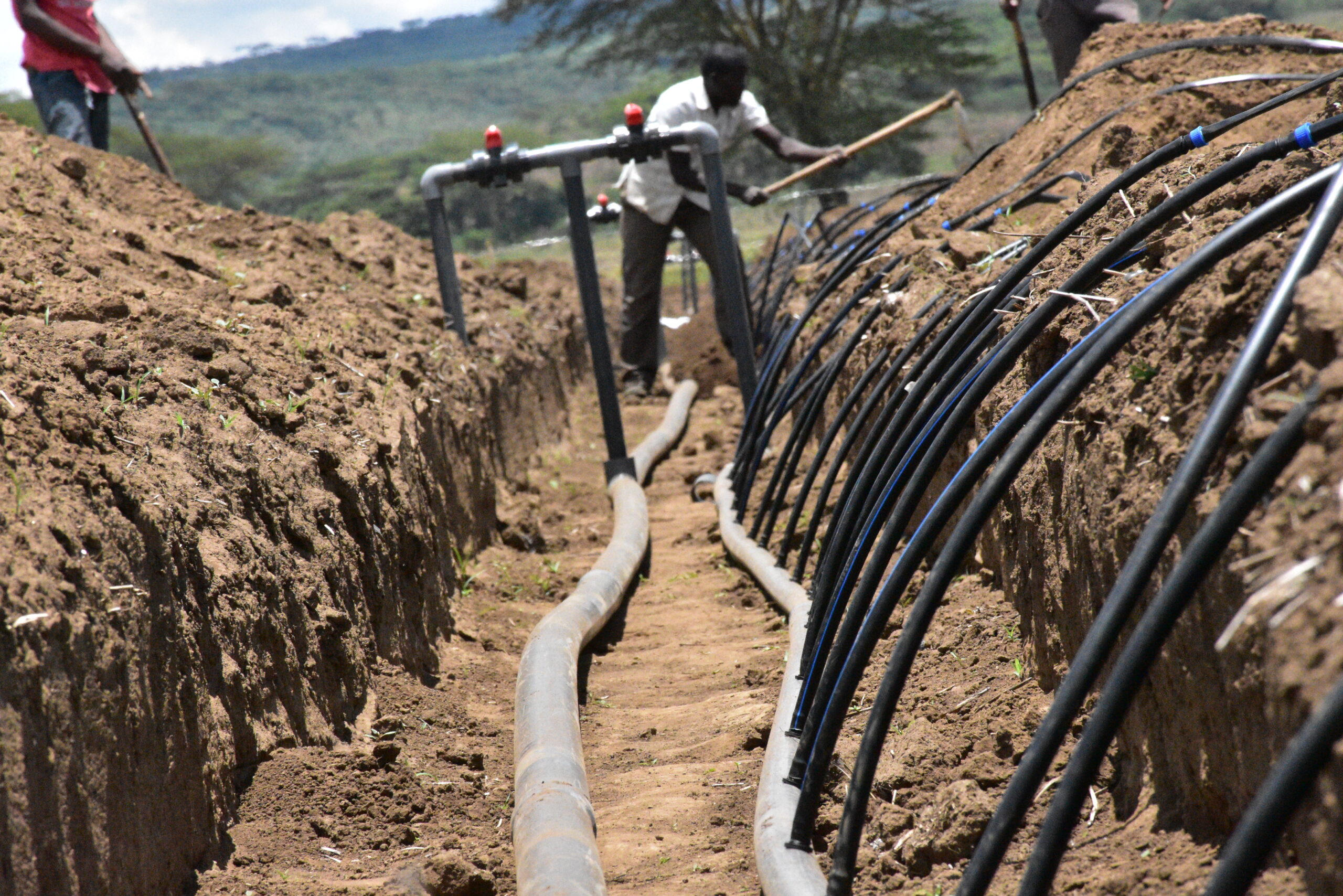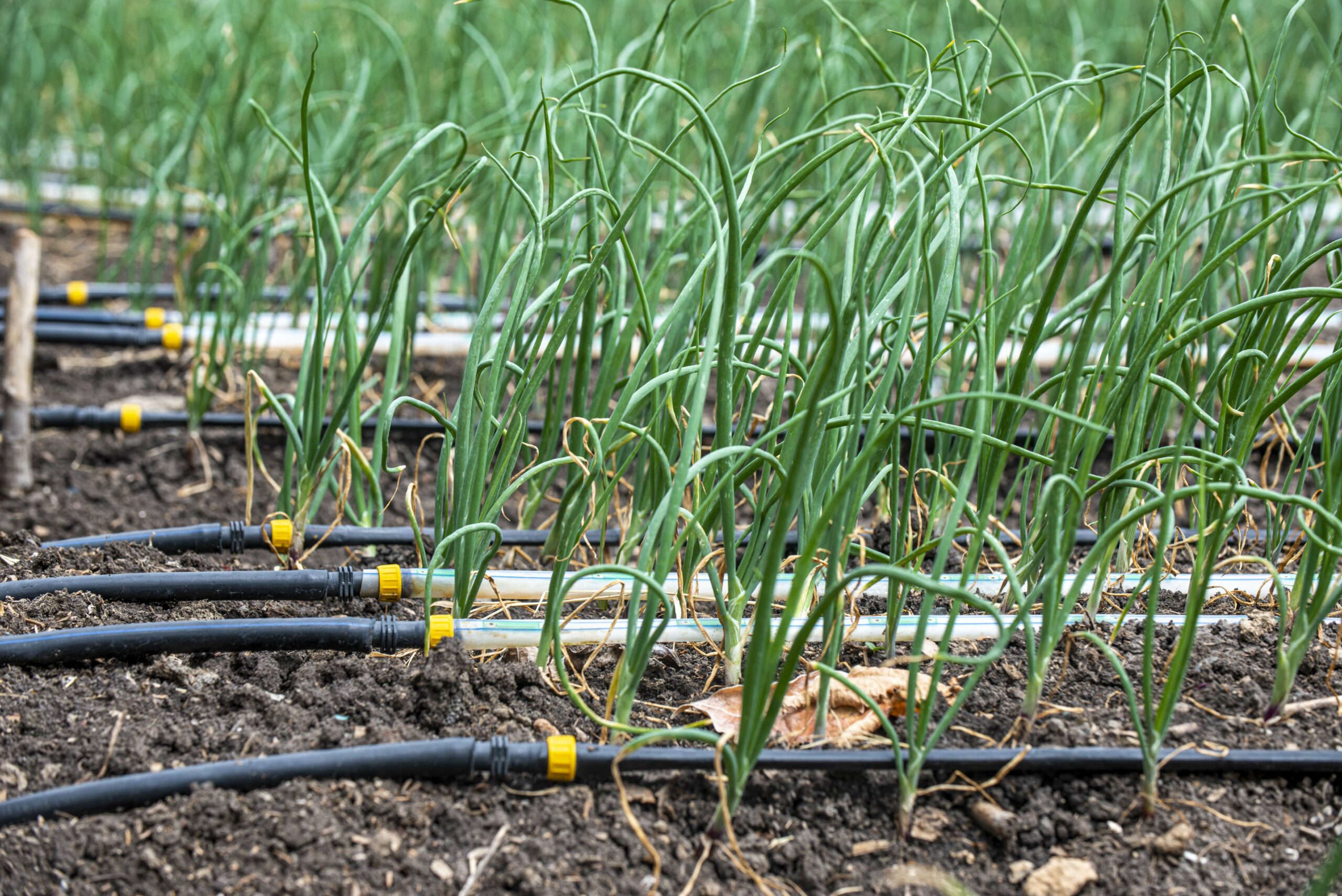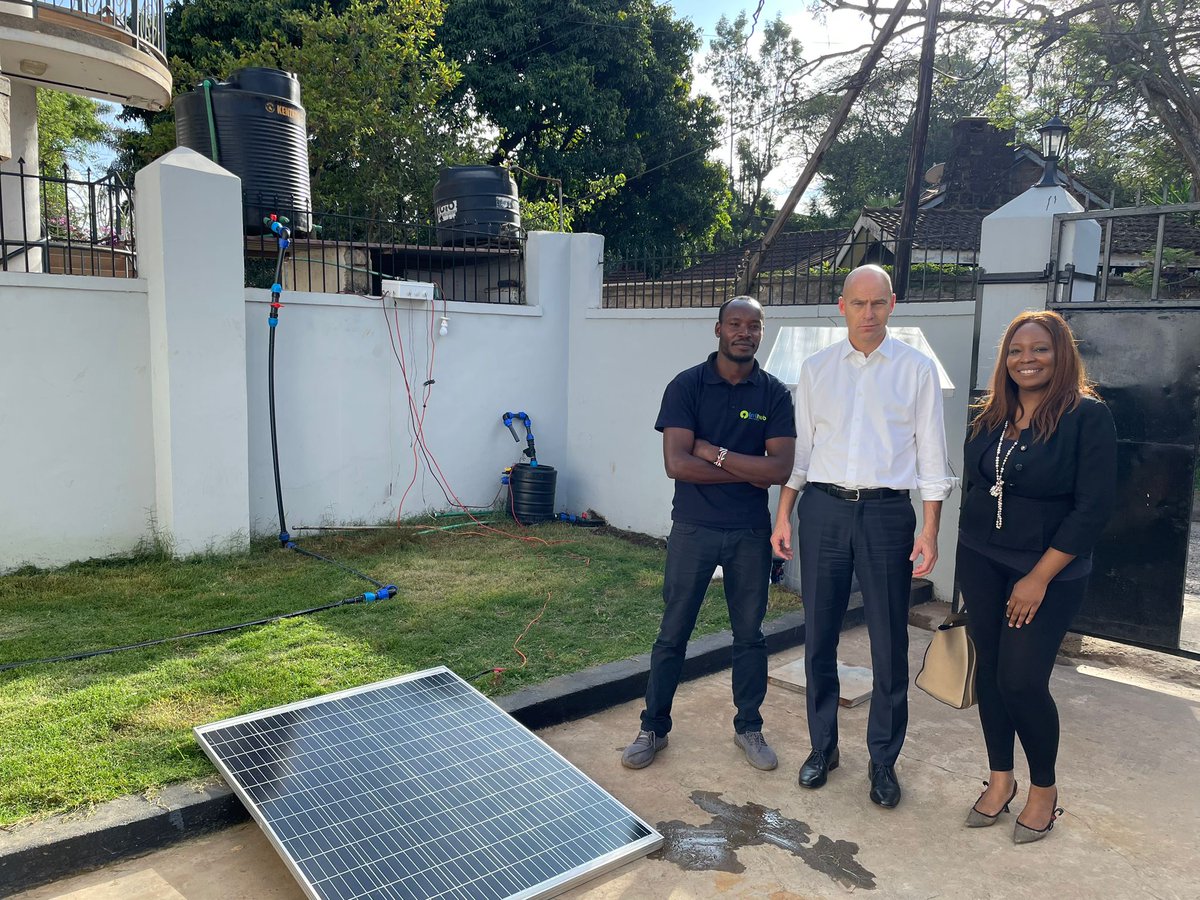Farming Communities Embrace Climate-smart Agricultural Solutions to Maximize Yields in Kenya
Led by CEO Eric Onchonga, Irri-Hub Ke Limited offers farmers climate-smart irrigation solutions to help combat the effects of climate change in Kenya, which is increasingly affected by severe drought. The enterprise is one of 15 winners of the 2021 African Youth Adaptation (YouthADAPT) Solutions Challenge that aims to empower African youth and help them scale up their innovative solutions.
A
cross 20 counties in Kenya, farmers are using a combination of new farming technologies and practices – including solar-powered drip irrigation and rainwater harvesting – helping them to adapt and build resilience to the challenges posed by an ever more unpredictable climate.
The effect of climate change on agricultural land in Kenya is stark. The decrease in rainfall during the two rainy seasons, coupled with an increase in temperatures, significantly decreases productivity. Many communities are overly dependent on rainfed agriculture, as they grow maize, beans, sorghum and subsistence vegetables during the rainy seasons. Farmers are experiencing repeated losses – this has very real implications for people’s health and well-being across the country, leading to food insecurity, hunger and malnutrition among other things.
For Nairobi-based agriculture company Irri-Hub Ke Ltd, the solution lies in offering a range of smart agricultural solutions to farmers, as CEO and Co-Founder Eric Onchonga explains: “Our mission is ‘giving life to the soil’ and we advocate for the use of drip irrigation as a viable adaptation and resilience-building strategy. We aim to bring this about by eliminating the uncertainty that surrounds crop production as a result of climate change. We offer rainwater harvesting systems in the form of lined water pans and ponds, mulching paper for reducing evaporation, greenhouses and shade houses for controlled-environment farming, solar pumps for the abstraction of water from surface and subsurface water storage structures, and drip irrigation for efficient water utilization.”

Empowering Local Farmers to Adapt
Devolving decision-making is key. Irri-Hub Ke Ltd works closely with the farming communities, who run the projects, with leadership at a local level exercised through different local groups and associations. During the installation phase, local people are engaged to increase their understanding of how the irrigation technology and solar pumps work. This helps to magnify the impact of the new agricultural solutions, together with giving a sense of ownership and partnership in the project.
Building understanding about climate change and its impact on farm productivity through sensitization work is an important element of the project. Local groups learn how using drip kits, a system of small pipes or tubing that deliver water directly to the root of plants in a slow and controlled manner. This type of irrigation system conserves water by minimizing evaporation and runoff, and is often used in areas with limited water resources. Drip kits enable smallholder farmers to change their cropping patterns from low-value crops to high-value horticultural crops, such as tomatoes, onions and leafy vegetables. Households sell the excess crops, thereby improving their economic situation.
Communication between Irri-Hub Ke Ltd and individual farmers and local farm groups is ongoing, notes Onchonga: “Our team works closely – both remotely and onsite – to ensure that the households adopt the system efficiently. Through phone calls, on-site demonstrations and training, we offer technical support to farmers by advising on proper irrigation schedules and intensity to optimize crop growth with minimum water consumption. This ensures they remain invested in the project.”
The response from local people has been very positive, says Caleb Owiyo from Utoma Youth Group: “The timing for this project couldn’t have been any better. As beneficiaries of the irrigation systems, we celebrate the efficiency in irrigation of our vegetables compared with manual irrigation using cans. It is our hope that with increased yield and quality, we shall expand and decentralize to further corners of our community.”
Enabling local farmers to shift from rainfed agriculture to solar-powered drip irrigation systems has had a significant impact, increasing the land’s productivity and making it possible to grow vegetables and other high-value horticultural crops all year round. “Precision agriculture, through drip irrigation, has also enabled rural communities to conserve water, which is an ever-scarcer resource given the fall in water levels in local streams and rivers”, says Eric Onchonga. “The project has therefore enabled farmers to minimize the damaging effects of climate change on their fields’ productivity while also building their resilience.”

The Impact of Winning the YouthADAPT Challenge
Irri-Hub Ke Ltd’s work is not without its challenges, emphasizes Eric Onchonga: “Sufficient funding is our biggest challenge. This limits our market reach and our capacity to upscale the transition from rain-fed to irrigation-based agriculture in Kenya. Logistics issues also arise, and we are sometimes compelled to work with a lean inventory and often experience delays in procuring materials for the project.”
As a winner of the YouthADAPT Challenge, Onchonga’s enterprise was awarded US$ 100,000 and the opportunity to participate in a 12-month business accelerator program to help scale more jobs and deepen the impact of his work.
To date, Irri-Hub Ke Ltd has directly assisted over 20,000 farming households. The total impact is, however, far wider and estimated to be closer to 200,000 people. Many young people, for instance, that work using boda bodas (bicycle and motorcycle taxis) have been able to secure more income by helping the farmers travel to market. Increased produce also means increased trade, benefiting market vendors and the local economy.
With the need for new sustainable agricultural practices only continuing to grow, Irri-Hub Ke Ltd is ambitious and aims to empower a growing number of farming communities in the future.

Irri-Hub Ke Limited CEO Eric Onchonga with GCA CEO Prof. Dr. Patrick Verkooijen and Program Lead, Jobs for Youth & Entrepreneurship Aramide Abe
The YouthADAPT Challenge was launched by the Global Center on Adaptation (GCA), the African Development Bank (AfDB) and Climate Investment Funds (CIF). As an integral part of the Africa Adaptation Acceleration Program (AAAP), the challenge provides enterprises run by young African entrepreneurs with funding of up to $100,000 and a one-year accelerator program that includes capacity-building training, mentorship and coaching.
The AAAP is an Africa-owned, Africa-led initiative spearheaded by GCA and the African Development Bank with the support of the African Union and African leaders. The AAAP is mobilizing US $25 billion for adaptation investments in Africa in the next five years. GCA’s AAAP Upstream Financing Facility is mainstreaming the best climate adaptation science and solutions into programs across Africa. In its first 24 months of operation, the Upstream Financing Facility has influenced more than $5.2 billion in downstream investments with Multilateral Development Banks in 19 countries across Africa.
This article was originally published on GCA’s Global Hub on Locally Led Adaptation (LLA), an online platform launched in 2022 to inform and connect local communities and LLA practitioners around the world.